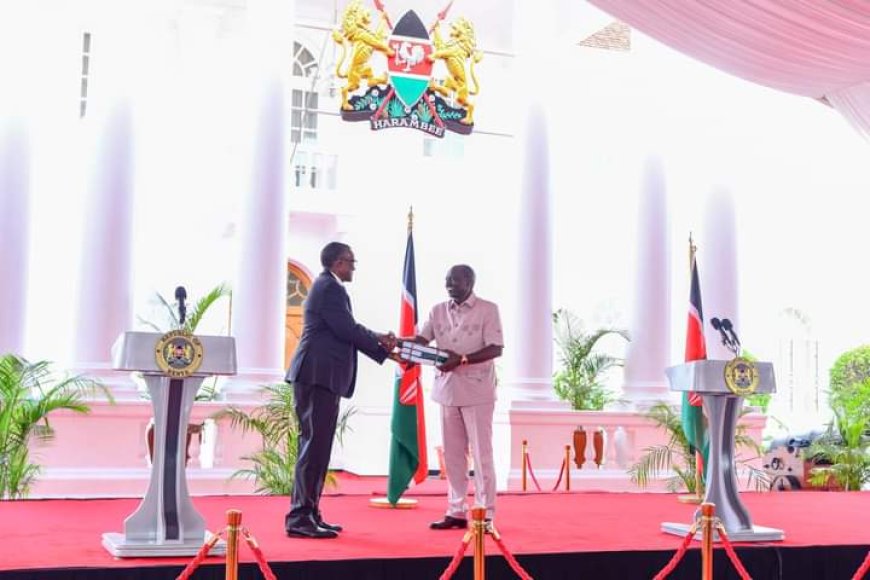Police, Prison officers set for a 40% salary increment

By Peter Ochieng
The future is bright for National Police (NPS), Kenya Prisons Service (KPS) and National Youth Service (NYS) officers.
They are set for a 40 percent salary increment, spread over the next 3 years. President William Ruto made the announcement on Thursday in Nairobi, after receiving recommendations of the taskforce on police reforms chaired by retired Chief Justice David Maraga.
Ruto said the recommendation on salary increment by Maraga's team is a well-considered one, adding that what remains is work for the Salaries and Remuneration Commission (SRC).
“I have seen the recommendation made by the taskforce to enhance salaries of our police, NYS and prison service by 40% over the next three years. I think it is a well-considered recommendation, and we will now await the work from the Salaries and Remuneration Commission to make the necessary adjustment so that we can implement the recommendation.”
He went ahead to list some of the primary issues highlighted by the Maraga taskforce, in its recommendations.
“The taskforce has diagnosed four primary problems in our services that have hampered effective and efficient service delivery, rendered them resistant to growth and transformation and collapsed their stature in the eyes of Kenyans. The problems are, broadly, underfunding, deficient leadership, structural and organisational weaknesses and, most critically of all, corruption."
“I am directing the relevant organs of government to commence implementation of reviewing the pay, living conditions, medical cover, housing and other aspects of welfare for members of the services and simply do the right thing," added the Head of State.
He pledged among others, to ensure no officer serves for more than three years in the same county, adding that promotion and recruitment of members of the police services will be made transparent.
In December 2022, Ruto appointed Maraga the chair of a 20-member task force to review police officers' welfare.
The team moved across the country for meetings with members of the public, police officers, civil society groups and security stakeholders, before coming up with recommendations.
What's Your Reaction?


































































































































































































































































































